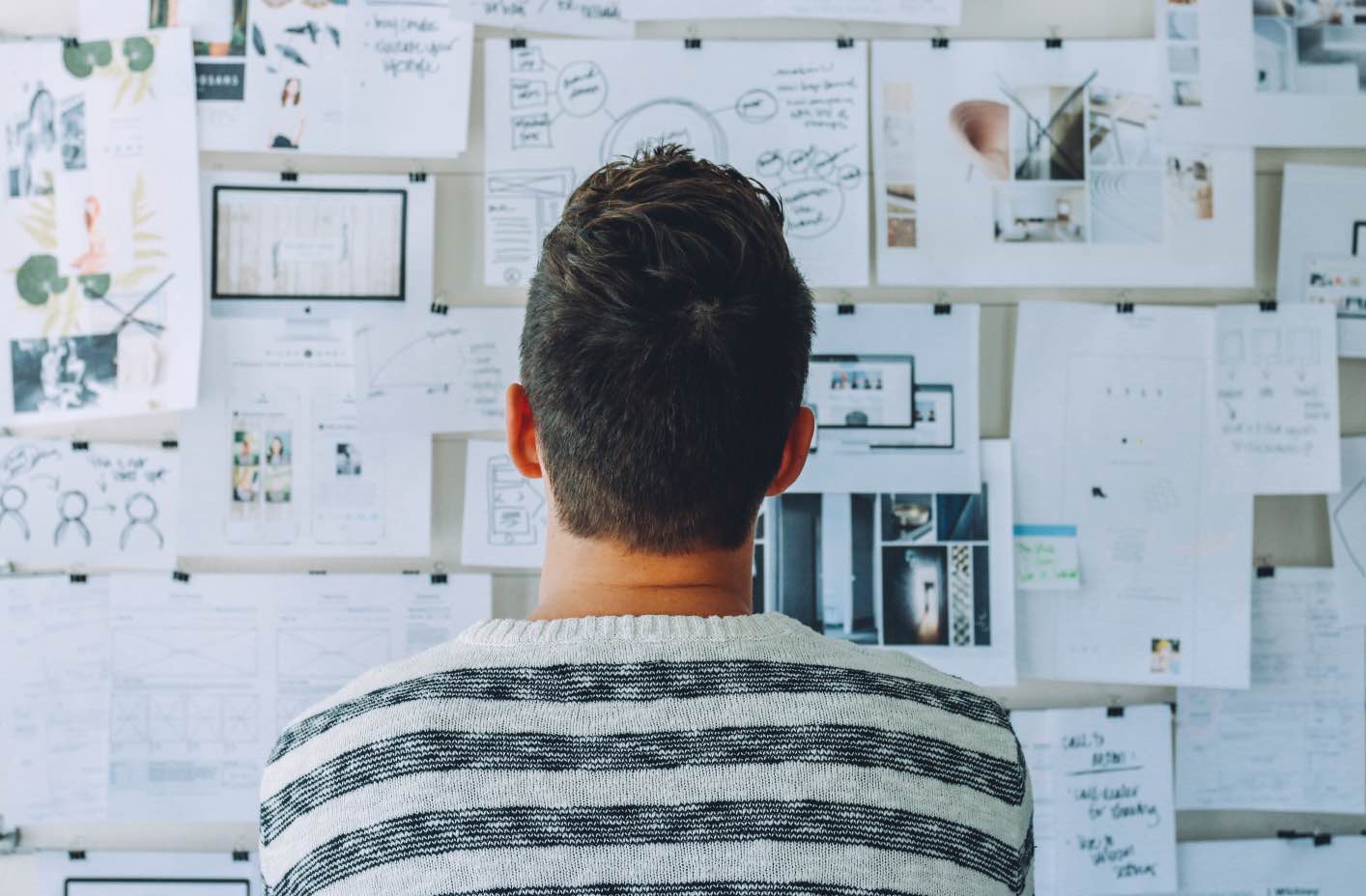
My math teacher, strict and officious, was looking for me.
That morning we’d finished a back-to-school math test. He seldom looked for his students after tests, so it must have been serious. I was worried.
I’d actually enjoyed the exam. It gave me a chance to see whether I had truly reworked myself as a student during the summer before my high school senior year.
Only now, Mr. Strict & Officious was interrupting Spanish class – just to see me.
Congratulations
“Congratulations,” he extended his hand. “You scored a 96% on the test. I’m proud.” I’d never heard those words from him before – or any teacher for that matter. He was proud because I ended the previous academic year — two months before — with a 58% average in his class.
In fact, I had such an average in all my classes; I’d been an average student all my life. But with that score, and his congratulations, I knew that the self-study methods I used over the summer had worked.
When I’d finished my junior-year final exams (with my historical below-average average) I realized I was tired of amounting to nothing or fearing that would be my eventual fate. This may sound like disparaging self-talk, but I don’t think of it that way because it galvanized me to change. I realized I needn’t accept that I was a mediocre student. I had heard many times from family, friends, and teachers that I could do better. Yet, I applied minimal effort because I never thought it mattered. But now it did.
Effort=Results
I’d finally realized that my effort determined my results. So I became curious about what would happen if I worked harder. My peers were equal parts surprised and amused that I’d decided to continue studying after my exams, but this was the right path – bare and rough – but also as rewarding as it was tiresome.
That summer I committed to studying ten hours a day, and from the perspective of a habitually low achiever, I discovered the innerworkings of a straight-A student. The key is rigorous self-assessment. A ten-hour day of study would have seemed impossible to my old self, but what kept me going was my desire to stop restricting myself from reaching my full potential.
Evaluation Time
I began by examining my flaws as a student, by evaluating them as an adversary might. I identified areas where I had no discernable reason to be weak. I had an aptitude for a variety of subjects in earlier school years, but I spent little time studying, and when I did study, it was inefficient. All I did was reread my notes and cram for tests. And when I couldn’t understand something, I felt uncomfortable asking my teachers for help or extra resources.
This evaluation told me why I was not performing at my full potential. Identifying why you are not achieving your desired results — whether because of inadequate studying or poor studying habits — will let you see what you need to change.
Use These Tools to Transform

Prioritize Forms of Studying Requiring High Focus.
When I did not know how to study, I mistakenly defaulted to the same methods for both familiarizing myself with new material and reinforcing knowledge. I used shallow processing for both. The methods we use when we learn things for the first time—through textbooks and lectures by reading and highlighting, watching, and listening—tend not to develop the critical-thinking skills necessary for engaging with complex problems because those activities, after the initial familiarization, are basic tasks that only require shallow processing.
Yet this form of practice is common among average students; where they think they’re working, they’re doing surface-level studying. High-focus studying, however, doesn’t just help you learn but shows you how to apply the material — this is the crux – the how in being a good student.
When I returned to school for my senior year, I continued to adhere to the principles of avoiding familiarization tasks and focusing on deep-processing tasks no matter what my class assignments were. Sometimes, even my homework was designed for familiarization, so it didn’t necessarily evoke deep processing. I avoided that homework until the last minute to focus on revising rigorously. So, I recommend evaluating whether the teacher’s learning materials — homework, quizzes, interactive lectures — prompt critical-thinking. If not, you can redirect yourself to more rigorous studying.
Practice Exams Are a Universal Tool
A rigorous tool that prompts deep processing is practice exams. What better way to prepare than practicing that for which you are ultimately preparing? I found practice exams were most useful after I finished familiarizing myself with a specific topic or concept. For example, after I finished learning about kinetics for Chemistry, I sifted through past exam papers — which were available free online — and did the kinetics questions and checked my work. This let me diagnose how well I learned the concept, informing me where to go back and revise. (In this final step, referring to the lectures and readings is fine to fill your knowledge gaps. But they alone cannot tell you where the fissures in your knowledge exist.)
Create Your Own Practice Exams
If you cannot access exam questions, create your own. Ask yourself about the details of the causes and effects of various phenomena you learned. Modify the typically easier textbook or homework questions with more difficult numbers or by expanding their scope — if the question asks What, tack on a Why, Who, Where, When, or How whenever pertinent. It also helps to ask yourself why the textbook or lecturer is using a particular example to explain a concept. Why does that example fit? Can you think of another one?
I know these approaches work because when I did not use them, I fared poorly. For instance, that summer I spent two hours a day studying the material from my biology course by handwriting notes from the textbook. But this was shallow work and failed to reinforce the material, nor did I learn how to apply it by assessing myself. So, when I returned to school and prepared for the unit tests, I had to study the same stuff all over again and then do practice exams.

Self-Reflection Is Key
My enthusiasm— stemming from studying properly for the first time—drove me to leave no stone unturned, not even the biggest boulders. The boulders were my struggles, which I had during the practice exams, despite rigorous preparation. So, I began to ask myself questions:
- Why was I struggling?
- What about the question tripped me up?
- Why was I unsure about the answer?
This reflection, which I now do during actual exams, let me diagnose my flaws in my methods of thinking and thus engage in deeper processing.
This practice also made me more confident about what I learned, which meant I less frequently confused similar concepts or vacillated between answers during multiple-choice questions. And such a comprehensive self-evaluation prompted deeper thinking during studying — not only about the answer but about how I arrived at the answer, whether efficiently or not. The deeper you go, the better you’re using your time.
Ignore the Pace of the Classroom
Finally, while it seems counterintuitive, you can excel by ignoring the pace of the classroom. Ignoring the set pace lets you go faster, return to material you want to reinforce, and maximize your interactions with teachers. I found that working two classes ahead of my teachers’ instruction helped a lot.
This sounds like a lot!
How did I find the time? One thing I changed that summer was my mindset on scheduling. All my life I had scheduled when I would study. But I changed that: my default activity the entire day became studying, like a job, and then I scheduled time to have fun. But that doesn’t mean I rarely had fun. I found joy in the interesting things I learned; and I was excited to finally feel like I was comprehending the material properly.
What might motivate you is asking yourself why you want to succeed in high school:
- Do you want to become a better student because you need a scholarship?
- Do you want to improve to discover your potential?
Answering such questions will allow you to access your reservoir of motivation.
I no longer wanted to see my potential pass me by. This was the motivation that pushed me to self-study ahead of the planned lessons – from textbooks and practice exams – so when I sat in the classroom, I had the foundation to ask my teachers deeper questions that would further my understanding. As a result, they dove deeper into the material than they would have normally.
Getting the most out of your education — is the greatest skill you can develop while being a student. It is the groundwork from which you will become a student for life.

By Aman Majmudar
Aman Majmudar is a sophomore at the University of Chicago. He loves writing, learning, and striving for mastery and hopes to galvanize readers to do the same. He thrives while exploring new ways of living—through food, travel, culture, friendship, and ideas.
Connect With Us on Social Media!
RECENT FAVES
Tips for Hitting the Road with Your Furry Friends
Part 1 of Kathlene McGovern’s 2 part series on the best and safest ways to travel with your furry friends!
I’m Just Curious
Dove Rose give us ideas on how to stay curious! Keep it Fresh in the Kitchen, on the Drive and in your Life. New ideas to keep our mind alive!
Living Unhoused for a Week: Ken Craft Takes to the Streets
Ken Craft of Hope of the Valley lives unhoused on the streets of the San Fernando Valley for 100 hours and shares the challenges, insights and struggles he faced on this journey.



